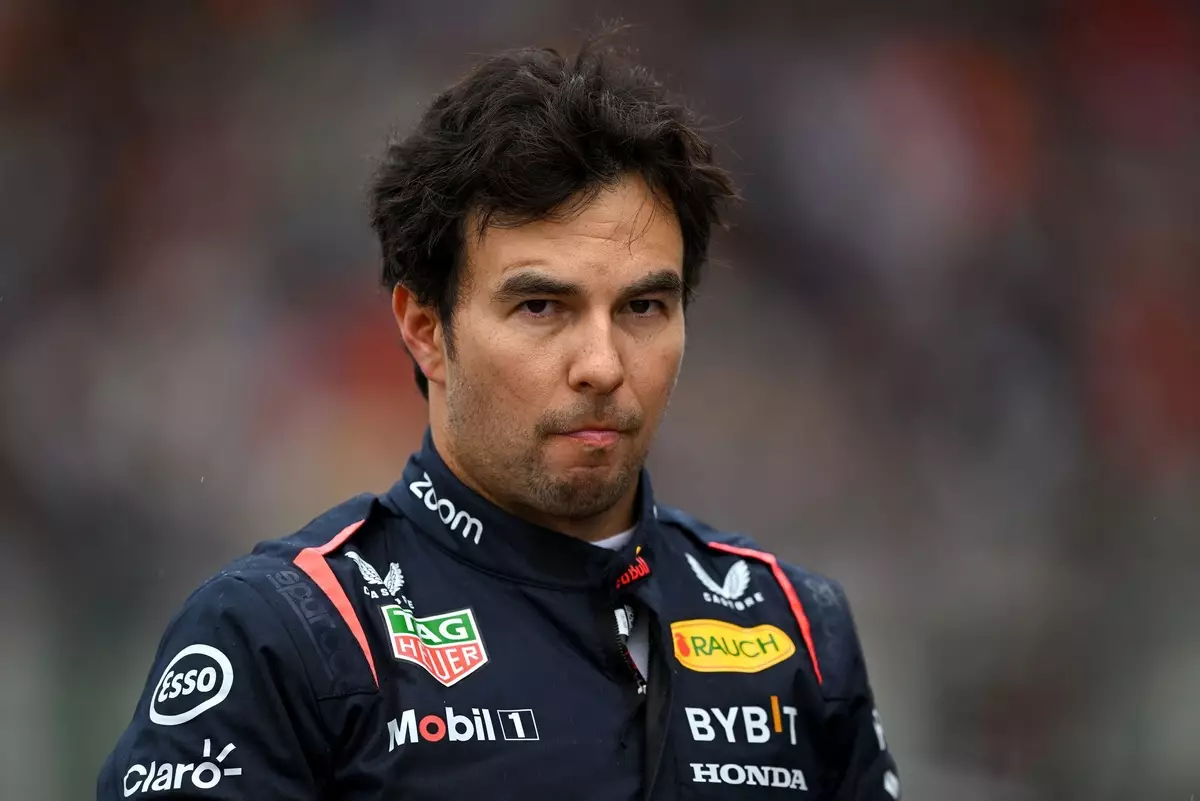Sergio Perez’s departure from Red Bull Racing highlighted the toxic dynamics that can permeate Formula 1 teams. The high-octane world of racing is notoriously demanding, but Perez’s claims indicate that the pressure mounted in his garage reached explosive proportions. His assertion that Red Bull created an environment fraught with unnecessary strain permeated his tenure, culminating in a breakdown of performance and morale. While the pursuit of victory ignites fierce ambition among drivers, it must be balanced by a supportive framework from the team. In this case, it seems that balance was lost.
Although Perez’s stint ended abruptly, the ramifications of that departure ripple through the team’s performance post-transition. His comments during an interview with Memo Rojas Jr. reveal more than just his personal struggles; they underscore a growing concern around team dynamics in a sport built on precision and cohesiveness. The expectation for Perez to continuously churn out top-tier results while navigating political conversations around his future created a chasm that destabilized not only his performance but also the engineers and team members who relied on him.
The Irony of a Signed Contract
One of the most striking elements of Perez’s narrative is the irony surrounding his contractual situation. He possessed a signed contract that promised stability, yet from the moment it was inked, the conversation shifted ominously towards speculation of his future. This premature doubt undermined any sense of security he might have derived from the agreement. “I had a signed contract in Monaco,” Perez lamented, noting that rather than being bolstered by this commitment, he was met with a barrage of skepticism that threatened to destabilize his performance.
This situation raises vital questions about how teams manage driver contracts and the fundamental expectations that come with them. Instead of creating a solid foundation for success, Red Bull’s leadership seemed inadequately equipped to address the growing tensions in the garage. The lack of clear communication and steadfast support allowed rumors to fester and undermine team confidence, something that Perez believes cost the team dearly.
Blame and Accountability
The culture of accountability in elite motorsport can oftentimes skew in favor of the team over the individual. The lack of support from Red Bull towards Perez rippled through the organization, exemplifying a broader systemic issue regarding how teams communicate responsibility. When Helmut Marko publicly blamed Perez for the team’s failure to secure an annual bonus, it underscored an environment where the driver became the scapegoat. Such decisions ultimately reveal a failure in leadership and an absence of solidarity—a detrimental mix when every fraction of a second can determine championship standing.
In retrospect, the legacy of Perez’s exit serves as a case study for how pressure, poorly managed, can derail progress. The swift replacement of Perez with less experienced drivers like Liam Lawson and Yuki Tsunoda did little to alleviate the concerns. The struggles of these drivers in matching the performance benchmarks set by superstar Max Verstappen only affirm the dissatisfaction within the team regarding their decision-making strategy.
The Impact of Leadership Changes
For Perez, the fracture within Red Bull can be traced back to significant changes in leadership—most notably, the departure of celebrated designer Adrian Newey. His exit sent shockwaves through the engineering department, taking with it not only expertise but also an aura of stability that characterized Red Bull’s competitive edge. This reality is tinged with frustration for Perez, as he believed that the introduction of uncertainty directly correlated with a decline in performance.
“Adrian Newey’s departure was a pivotal moment,” Perez remarked, suggesting that without Newey’s direction, the team lost its innovative spark and cohesion. The small margins of performance that once set Red Bull apart from competitors have since evaporated, highlighting how integral strong leadership is to success in Formula 1. When a team fails to recognize the importance of cultivating talent and maintaining an environment of support, it becomes a recipe for struggle.
In a sport where seconds define outcomes, Perez’s experience serves not only as a cautionary tale but also as a clarion call for teams to re-evaluate how they treat their competitors. The world of Formula 1 is unyielding, but its greatest challenges arise not solely on the race track, but within the team dynamics that can either propel a driver to greatness or implode their dreams.


Leave a Reply